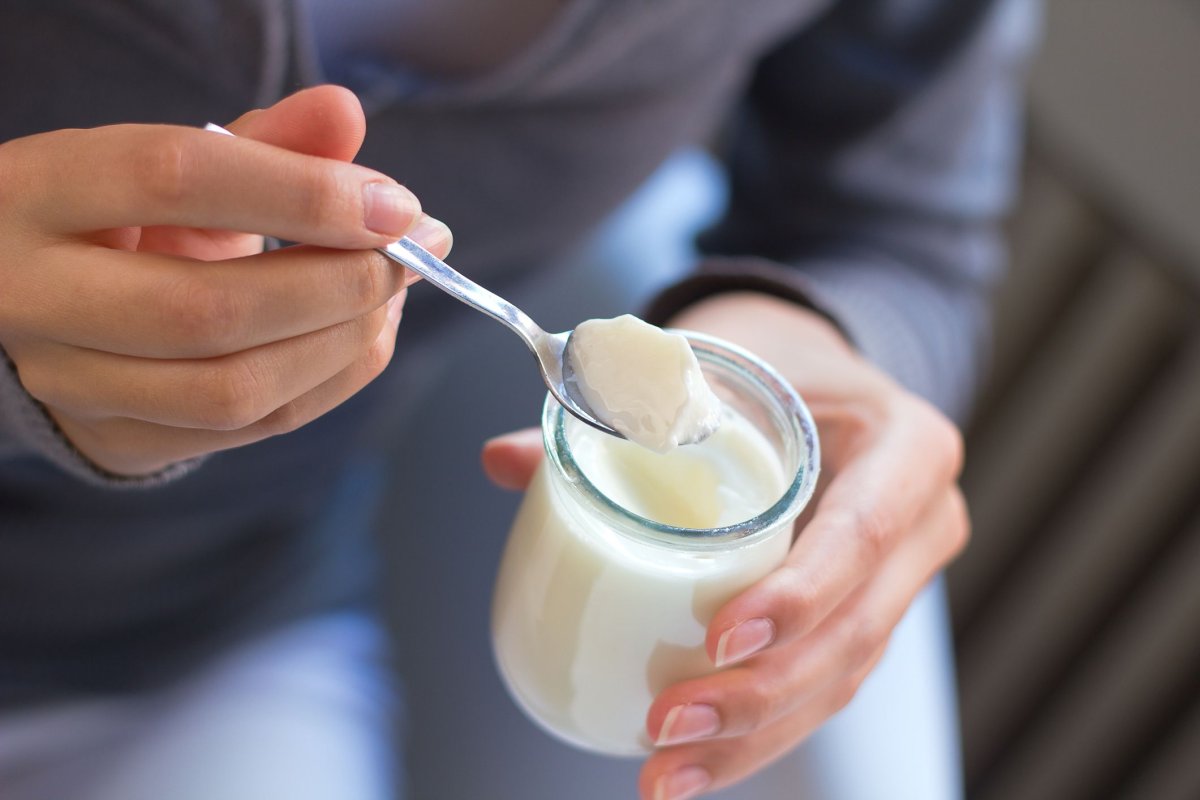Think of probiotics, and yogurts promising perfect gut health will likely come to mind. But they might not be the panacea for the digestive disease you assume, according to a small study that has linked them to brain fogginess and bloating.
The team of researchers at the Medical College of Georgia at Augusta University believe theirs is the first study to link probiotics to brain fogginess and the growth of bacteria in the digestive system. In some cases the symptoms patients experienced were so severe they had to quit their jobs.
Probiotics is the umbrella term for foods or supplements that contain living microorganisms intended to cultivate the so-called "good bacteria" in our bodies. Such foods include yogurt, kimchi and sauerkraut. Cultivating such bacteria is generally thought to be beneficial to our health, as it is believed to balance the so-called good and bad bacteria in our bodies.

But if probiotics colonize the wrong part of the digestive system, such as the small intestine or stomach rather than the colon, this can cause problems, explained Dr. Satish S.C. Rao, director of neurogastroenterology at the Medical College of Georgia at Augusta University and author of the study published in the journal Clinical and Translational Gastroenterology.
The scientists arrived at their conclusion following a small study involving 30 patients, whose gastrointestinal tracts they examined. The participants also filled out questionnaires on their digestive symptoms, whether they had recently used antibiotic or probiotics, and if they ate foods like yogurt.
Of these, 22 took probiotics and complained of feeling confused, having trouble concentrating or experiencing abnormal levels of gas and bloating. These participants had taken probiotics for between three months to three years, with some consuming as many as two to three different types. Around 37 percent ate cultured yogurt daily, which is known to help cultivate the gut microbiota.
Researchers discovered colonies of gut bacteria in these patients' small intestines. Test results also revealed levels of D-lactic acid were three times the normal level on average: likely caused by the bacteria lactobacillus fermenting sugars in their food.
D-lactic acid can be toxic to brain cells and impact a person's cognitive abilities, including their concept of time, although this fades. That may explain why some participants reported brain fogginess hours after eating.
Read more: Can't lose weight? Your gut bacteria could be to blame, according to study
Probiotics appeared to kick up production of D-lactic acid in the small intestines, the authors argued. Scientists already know probiotics can cause the body to produce D-lactic acid in patients whose small intestines do not work properly. Undigested carbohydrates that linger in the small intestine can cause a condition called small intestinal bacterial overgrowth (SIBO). It has also been found in infants who consume probiotic formula milk.
The researchers found all patients who suffered from brain fogginess had consumed probiotics, and were more likely to have SIBO and higher levels of D-lactic acidosis.
When the patients were prescribed antibiotics to tackle their unruly gut bacteria and stopped taking probiotics, 85 percent saw their symptoms disappear. Those without brain fog but with high levels of D-lactic acid saw digestive problems such as bloating and cramping ease within three months.
Rao said in a statement: "What we now know is that probiotic bacteria have the unique capacity to break down sugar and produce D-lactic acid. So if you inadvertently colonize your small bowel with probiotic bacteria, then you have set the stage for potentially developing lactic acidosis and brain fogginess."
Pointing to those who take probiotics with live bacteria without consulting a doctor, she said: "probiotics should be treated as a drug, not as a food supplement."
But probiotics do have their uses, said Rao. For instance in those who have suffered gastroenteritis, or who have taken antibiotics and need to repopulate their gut with friendly bacteria.
"In those situations, we want to build up their bacterial flora so probiotics are ideal," he said.
Kirsten Jackson, qualified dietitian and spokesperson for the British Dietetic Association who was not involved in the research told Newsweek the results do not surprise her as brain fogginess is a common symptom of poor digestive health.
She flagged: "The design on the study only shows associations and not actual links. However, there is equally no proof that taking probiotics for the general population is of any benefit - only for those with digestive problems."
And cultivating gut microbes is more complex than eating some yogurt or popping pills, she explained.
"Foods are actually not probiotic - there is no proof that they reach the large bowel in enough of a quantity to have a beneficial affect on health," she said.
"We already know that taking probiotics which have been proven to be of benefit, are only of benefit when the specific 'strain' of probiotic that has been proven for that specific problem is taken. Even then, in some studies, some people seem to have no benefit, suggesting that the problem is far more complicated and likely requires a multi-factorial approach."
Those interested in taking probiotics should discuss this with a registered dietitian who can assess their symptoms and give accurate and safe advice, she said.
This article has been updated with comment from Kirsten Jacskon.
Uncommon Knowledge
Newsweek is committed to challenging conventional wisdom and finding connections in the search for common ground.
Newsweek is committed to challenging conventional wisdom and finding connections in the search for common ground.
About the writer
Kashmira Gander is Deputy Science Editor at Newsweek. Her interests include health, gender, LGBTQIA+ issues, human rights, subcultures, music, and lifestyle. Her ... Read more
To read how Newsweek uses AI as a newsroom tool, Click here.








